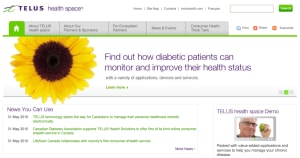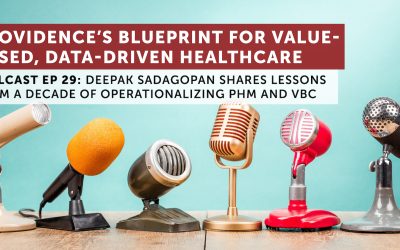
In announcing the launch of Telus health space last week, Telus stated that it currently has 12 ecosystem partners.
TELUS Health Solutions partners and sponsors include Asthma Society of Canada, Canadian Diabetes Association, Canadian Mental Health Association, Dapasoft, HealthScreen, Heart & Stroke Foundation, Johnson & Johnson LifeScan, Juvenile Diabetes Research Foundation, MedicAlert, OMRON, Shepell.fgi and Sunnybrook Health Sciences.
Quick Assessment:
The go-to-market strategy of Telus health space makes sense. A direct-to-consumer strategy for such services is fraught with challenges that even big consumer heavyweights such as Revolution Health and more recently, Google Health have struggled with and is unlikely to change anytime soon, thus it makes sense that Telus would go directly to providers, provinces and others to act as sponsors for the platform to serve their constituents. In a call Chilmark Research had prior to the announcement we did learn that Telus has conducted “deep” discussions with several Canadian provinces for their licensing of the Telus health space. As Telus will also be look to license Telus health space to providers, we wonder if Telus will also begin acting as a VAR for Microsoft’s Amalga platform and sell something similar to one of Microsoft’s most recent offerings, HealthVault Community Connect, which is getting a lot of interest among provider organizations here in the US.
The ecosystem is extremely thin. Out of the box, HealthVault is a secure data repository with APIs (application programming interfaces), an SDK (software development kit) and the Connection Center for biometric device readings. There is very little if anything out of the box that can readily and easily be used by a consumer. Thus, the success of HealthVault (or in this case Telus health space) is the ecosystem of partners that can be recruited to the platform to provide a rich end user experience. A quick scan of the partners for Telus health space does not look too promising (5 non-profits, large IDN in Toronto, only a couple of the numerous device manufacturers, and a smattering of software vendors) – not exactly a rich ecosystem that would compel one to readily sign-on.
Good go to market strategy, poor partner recruitment. The future success of Microsoft’s first international HealthVault partner is far from guaranteed.




0 Comments
Trackbacks/Pingbacks